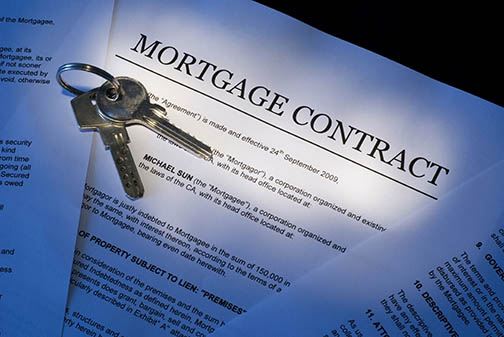 It seems like everything is getting jumbo sized these days. Jumbo sized soft drinks. Jumbo sized fast food meals. Jumbo sized smartphones. But one thing that nobody thought would get jumbo sized? Is mortgages.
It seems like everything is getting jumbo sized these days. Jumbo sized soft drinks. Jumbo sized fast food meals. Jumbo sized smartphones. But one thing that nobody thought would get jumbo sized? Is mortgages.
So what exactly is a jumbo mortgage? How is it different from a standard mortgage, and what does that mean for your refinancing options? Here’s what you need to know.
Jumbo Mortgages: Larger Sums For Enterprises And Wealthy Buyers
As the name implies, the main factor that sets jumbo mortgages apart from standard mortgages is the loan limit. Fannie Mae and Freddie Mac impose mortgage limits all around the country, limits that vary depending on the cost of living in each individual state. But in situations involving highly valuable real estate – like luxury properties and commercial real estate – standard mortgages simply don’t give buyers the freedom they need.
Jumbo mortgages are also common in areas with high costs of living, where real estate frequently surpasses the standard loan limit in high-cost areas.
How Do You Qualify For A Jumbo Mortgage?
As would be expected when higher sums of money are involved, the eligibility requirements for a jumbo mortgage are much stricter than for a traditional mortgage. Jumbo mortgages aren’t subject to private insurance, which typically means a down payment on a jumbo mortgage will be significantly larger compared to a standard mortgage. That also means people applying for jumbo mortgages must demonstrate to lenders that they have the income and wealth to pay the debt.
Jumbo mortgages also require a higher credit score. While most buyers can get a mortgage with a decent interest rate if their credit score is 660 or higher, buyers applying for a jumbo mortgage need a credit score of at least 700 to even be considered by most lenders.
Jumbo mortgage lenders can require borrowers to have at least 6 months worth of payments set aside in a bank account at the time of closing, while the requirement is typically two months for most mortgages. If you want to qualify for a jumbo mortgage, you’ll also need to prove to your lender that your debt-to-income ratio is below 45 percent.
Larger Sums Make Refinancing More Complicated
When trying to refinance a jumbo mortgage, you’ll face tighter restrictions compared to a standard mortgage. You’ll need to have a significant amount of equity in your home before you’ll be considered for refinancing. And if you’re planning to roll your HELOC debt into the refinancing plan, you’ll have to ensure that you haven’t made any deductions against your home equity for the past 12 months.
Some lenders may also have other special requirements when refinancing a jumbo mortgage. For instance, if you’ve owned your home for less than a year, you might have to opt for a Freddie Mac or Fannie Mae loan – and regardless of what fair market value is for your property at the time you file for the mortgage, it will usualy be assessed at its original purchase price if you’ve owned it for less than a year.
Jumbo mortgages can be a great way to buy a luxury home or commercial investment property. But in order to be issued a jumbo mortgage, you’ll need to meet a strict set of requirements.
If you’re considering a jumbo mortgage, a professional advisor can help you understand your options. Contact your trusted mortgage professional to learn more about refinancing options and how you can qualify for a jumbo mortgage.
 If you have a good credit history and are prepared to invest in a home, you may be feeling pretty confident about the mortgage process. However, it’s important to be aware that there are things that can have a negative impact on your application. Whether you’ve just submitted your documents or are getting close to it, here are some things you may want to avoid.
If you have a good credit history and are prepared to invest in a home, you may be feeling pretty confident about the mortgage process. However, it’s important to be aware that there are things that can have a negative impact on your application. Whether you’ve just submitted your documents or are getting close to it, here are some things you may want to avoid.
